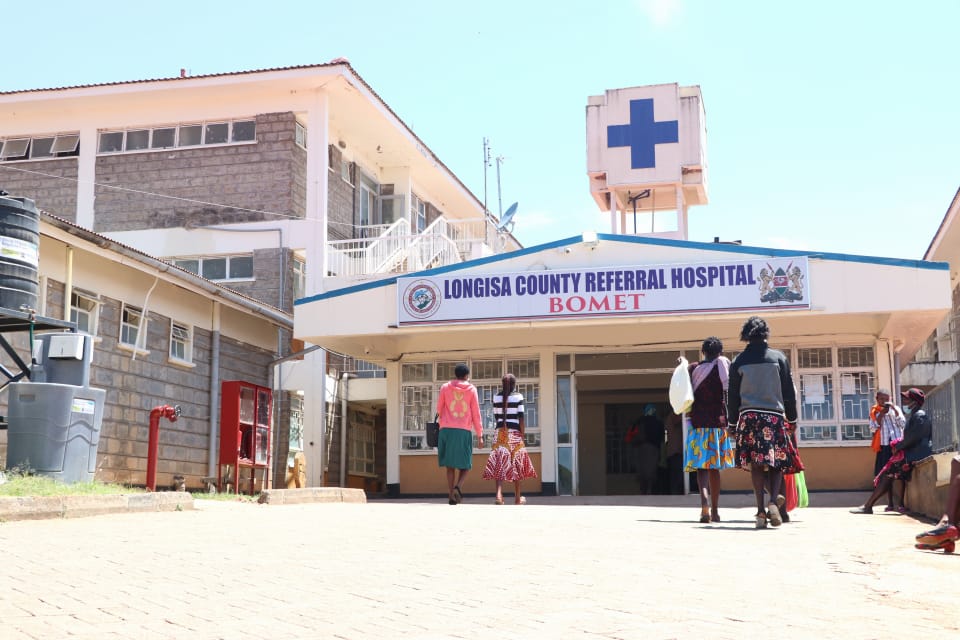Senate report reveals alarming neglect, drug shortages and overcrowding in county hospitals

The report paints a grim reality; wards without privacy, power outages in operating rooms, drug shelves left bare, and mothers in maternity wards forced to lie two or more to a bed.
A Senate inspection has revealed alarming levels of neglect and mismanagement in several county referral hospitals, revealing that patients share beds, critical drugs are out of stock, and basic healthcare services are crumbling under pressure.
The Senate Health Committee, in a newly released report, has detailed disturbing conditions in key health facilities meant to serve as centres of excellence at the county level.
More To Read
- Senate convenes special sitting to hear Governor Nyaribo’s impeachment charges
- Kenya unveils advanced bronchoscopy programme at KNH to strengthen respiratory care
- Senate summons Isiolo, Kericho governors for skipping audit hearings
- Governance Committee orders mandatory audit attendance for university heads
- Senate Committee moves to ban detention of patients, bodies over unpaid medical bills
- Ruto targets faster healthcare access with KEMSA direct medicine deliveries to hospitals
Instead, many are overwhelmed, underfunded, and grossly understaffed, with infrastructure stretched far beyond capacity and essential equipment either missing or broken.
The report paints a grim reality: wards without privacy, power outages in operating rooms, drug shelves left bare, and mothers in maternity wards forced to lie two or more to a bed.
“The committee noted that most health facilities did not have the requisite number of staff working in critical departments and that various departments in the hospitals were faced with a high workload and staff shortages,” the report states.
The hospitals visited include Longisa County Referral Hospital in Bomet, Ekerenyo Subcounty Hospital and Nyamira County Referral Hospital in Nyamira, Kisii Teaching and Referral Hospital, Kenyenya Subcounty Hospital in Kisii, Vihiga County Referral Hospital in Vihiga, Jaramogi Oginga Odinga Hospital, and Ahero Subcounty Hospital in Kisumu.
At Longisa Referral Hospital, maternity services have been pushed beyond their limits. The facility, built to host just 16 mothers, now handles as many as 120.
At the time of inspection, 46 patients were admitted to a ward with only 39 beds, forcing patients to share and straining the few staff available.
The staffing crisis is stark. The hospital operates with only 12 nurses, two gynaecologists, four medical officers, two interns, and 10 clinical officers. P
er shift, only two doctors and three nurses are available.
Five nurses were away on study leave, worsening the already overstretched workforce. The ward was operating at 90 per cent capacity, with mothers sharing beds due to a lack of space.
The report also revealed serious medicine shortages. The hospital cited inadequate deliveries from the Kenya Medical Supplies Authority (KEMSA), whose fill rate is still far below what the facility requires.
The Tuberculosis (TB) section, in particular, was facing stockouts that could put lives at risk.
At Ekerenyo Subcounty Hospital, basic patient needs are being neglected. The maternity unit has only three beds and no curtains to provide privacy.
In the male ward, patients lie next to bare windows with no screens.
“The committee observed that the male ward had bare windows and lacked bed screens, raising concerns about patient comfort and dignity,” the report states.
Other Topics To Read
In nearly all the hospitals visited, the committee observed unreliable water and electricity supply, incomplete infrastructure projects, and a general lack of cleanliness that exposes patients to infections.
Simple items such as curtains, food for patients, and waste bins are missing, worsening the state of care.
The Senate report reinforces long-standing concerns about the state of public healthcare under devolution.
Despite the goal of making services more accessible and responsive to local needs, the findings suggest a failing system in need of urgent intervention from both county and national governments.
Top Stories Today













































